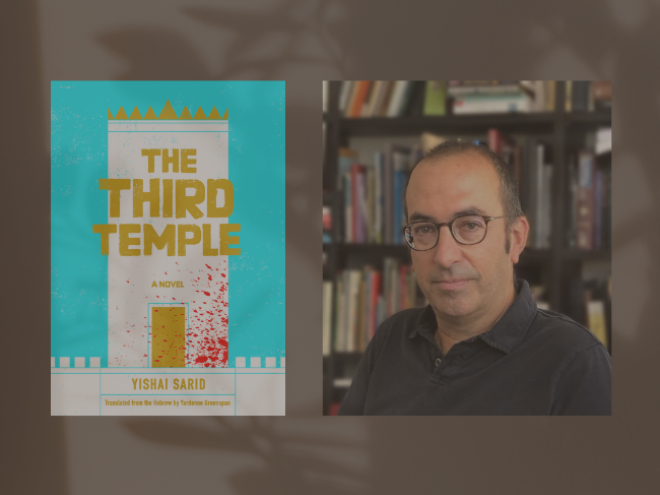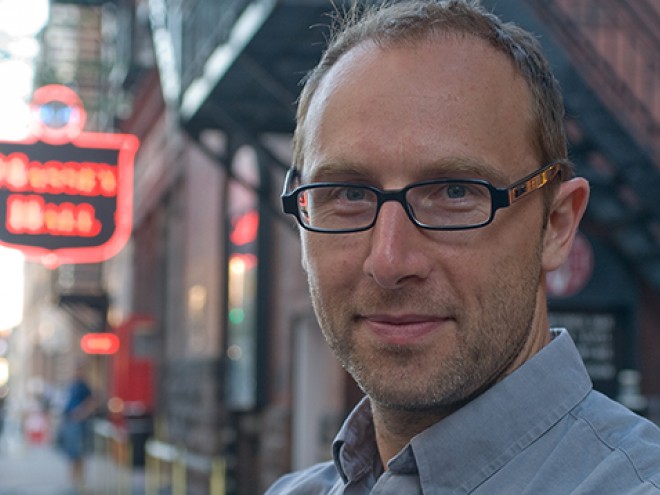with Ranen Omer-Sherman
In her latest book, Pulitzer Prize winner Geraldine Brooks sets herself the daunting challenge of portraying one of the most heroic yet morally troubling figures in the entire corpus of Jewish literature. She shared her experience researching, concocting, and writing The Secret Chord: A Novel with Jewish Book Council.
Ranen Omer-Sherman: What struck me most in reading The Secret Chord was the ambitious work that you do with women’s voices and interiority. They are all such distinctive and engaging characters, each with disparate emotional and intellectual responses to their circumstances. How challenging was that aspect of writing the novel?
Geraldine Brooks: For many years before I became a novelist, I covered the Middle East as correspondent for the Wall Street Journal, and I found myself returning to those experiences — not just to the locations — as I thought about this novel. Especially, I drew on those memories as I considered the vivid stories of David’s wives. Women in the Old Testament don’t tend to get much ink. Many of them barely get a name. Lot’s wife… Gladys? Noah’s wife… Maude? We don’t know. And that’s both remarkable and dispiriting. Yet David’s wives do have names, and they have distinct personalities and backstories. But they are sketches, merely, told in a few lines, and always from the male point of view — from the perspective of their impact on David; of what it was like to be them, nothing much is said. So I wanted to flip the point of view, and look at events through their eyes. These women lead precarious lives in a society that gives them no evident power and few rights. David’s wives have to duck and weave and improvise to stay alive, to have say in their marriages, to stop their husbands from making mistakes likely to get them killed, to secure a future for their children. So  many of the works of scholarship on David take the Bible at face value when it comes to the women’s stories: Mikhal is unfailingly portrayed as spoiled shrew, Bathsheva as a scheming temptress.
many of the works of scholarship on David take the Bible at face value when it comes to the women’s stories: Mikhal is unfailingly portrayed as spoiled shrew, Bathsheva as a scheming temptress.
If you apply a woman’s point of view, neither interpretation is plausible. So I thought about women I had reported on, women like Queen Noor in Jordan and Ayatollah Khomeini’s wife in Iran. As I thought about Bathsheva at David’s deathbed, maneuvering to get her young son Solomon on the throne, I thought of Queen Noor at the Mayo Clinic in Minnesota, as King Hussein lay ill with cancer. Somehow, it was Noor’s young son who was named crown prince, second in line to King Abdullah, ahead of many older brothers by Hussein’s former wives.
And then there was Mikhal, who became David’s first wife. Her father, King Shaul, was ambivalent about the marriage. That reminded me of a strange afternoon when I was invited to tea by Ayatollah Khomenini’s widow. She told me that day how she had managed to marry a guy who was then an impoverished religious scholar with no prospects. Khadijeh was just a girl, fully veiled in her chador, when she took in the tea tray and managed to catch a glimpse of her would be suitor, the young Ruhollah Kohmenini. She liked that glimpse, but her father said no, he wasn’t good enough. So, that night, she had a dream. In the morning, she told her father that she had seen Ruhollah meeting with all the great prophets of Islam. It’s probable that 99.9% of Iranians don’t know Khomenini’s wife’s first name. And yet she was immensely powerful in shaping the Iranian revolution. So, there were plenty of lessons about how you wield private power in a society that publicly barely acknowledges you.
ROS: Your portrayal of the prophet Natan is extraordinarily compelling, delving into the strange psychology and interior landscape of the Biblical prophet as a figure of moral conscience, his perpetual loneliness and sense of apartness in spite of being in the very midst of things. Did you find that particularly difficult to achieve?
GB: I relied heavily on the wonderful exegesis by Abraham Heschel in The Prophets. His characterization of them (“some of the most disturbing men who ever lived[…] facing man, faced by God”) really shaped my thinking as I tried to create a character and a backstory for Natan. There are givens: the ferocious bravery of such a person, the willingness to speak truth to power, the unsettling nature of the one who stands outside, but sees inside. I also wanted to leave the door open a crack for the reader: since Natan is the narrator, and he clearly believes his own role as the “hollow reed”, is he a reliable witness to his own gifts and powers? Is he a reliable narrator? That’s why, at points, I have other characters in the novel express skepticism about his visions and their purpose.
 ROS: I found your depiction of the ancient landscape wholly convincing, a truly immersive environment. You have mentioned spending some time hiking with your son (and herding sheep) in the Judean desert and so on, but was there more research involved?
ROS: I found your depiction of the ancient landscape wholly convincing, a truly immersive environment. You have mentioned spending some time hiking with your son (and herding sheep) in the Judean desert and so on, but was there more research involved?
GB: For the sheep herding, we were at a Biblical reserve in the Shefala, founded by Ben Gurion, where the flora and fauna have, as far as possible, been returned to the species that prevailed as described in Biblical times. We spent a long afternoon there. We also went to a Bedouin settlement where you can experience a tent encampment not so very different from the living conditions of David’s outlaw years. We visited archeological digs to get a more accurate sense of the material culture of the Second Iron Age — what was a palace in those days? What was a house like? What did they eat and drink? My IDF contact got very enthused about the project and actually conducted some of his own site visits, for which I am exceptionally grateful.
The imaginative challenge in my writing was de-populating the landscape, since only 45,000 people are thought to have lived in the area conjecturally associated with David’s kingdom, opposed to some four million or more in that same area today. I also had to mentally re-vegetate it: the Ottomans had a tree tax, so massive land clearing happened under their occupation in that era. In David’s time there were expansive forests and lots of fauna, including lions!
Related Content:
- Michal Lemberger: How Do You Make King David a Villain?
- Bible & Biblically Inspired Stories Reading List
- David: The Divided Heart by Rabbi David Wolpe
Ranen Omer-Sherman is the JHFE Endowed Chair in Judaic Studies at the University of Louisville, author of several books and editor of Amos Oz: The Legacy of a Writer in Israel and Beyond.




